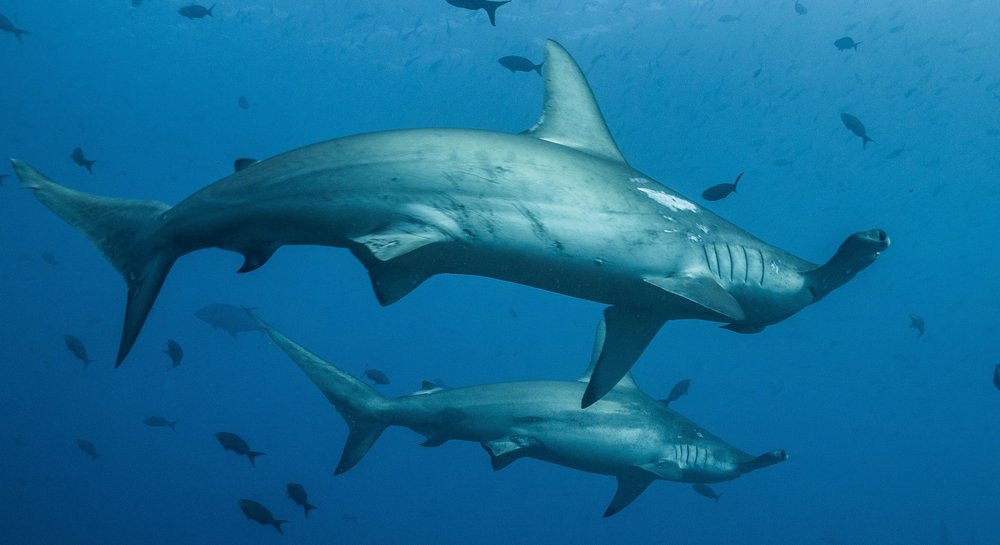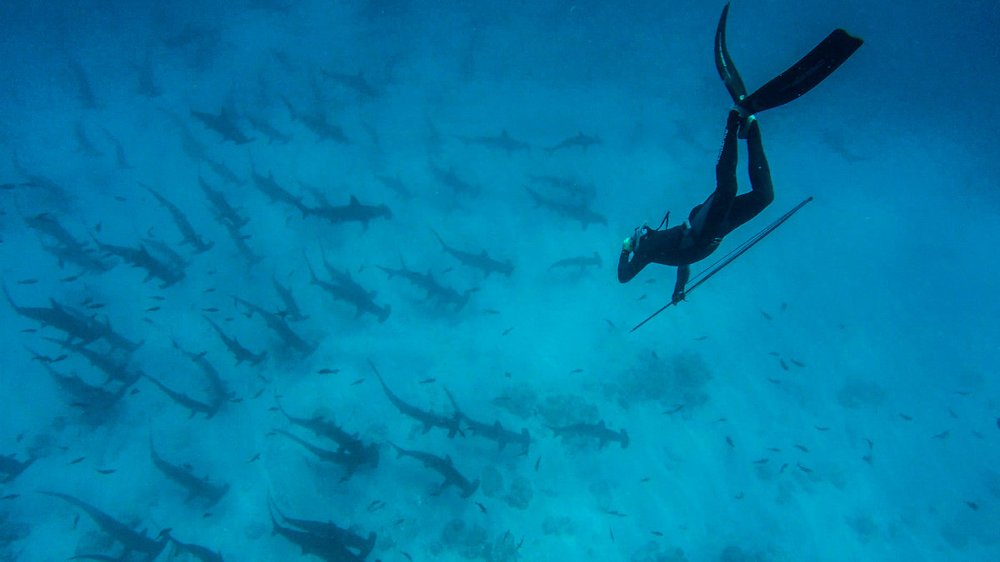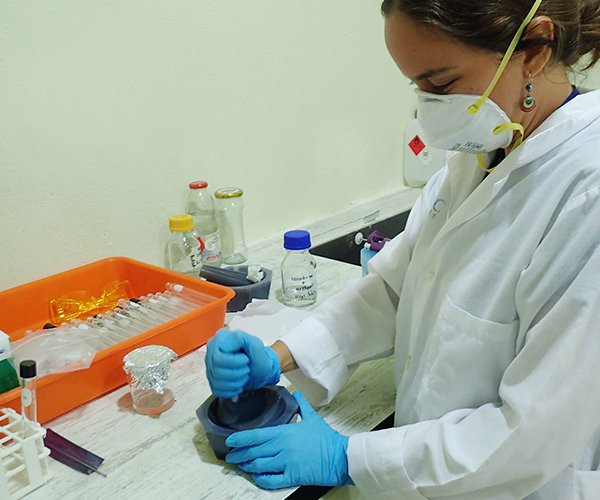Recently, researchers from the Charles Darwin Foundation, the Universidad San Francisco de Quito and the Galapagos National Park Directorate demonstrated that the feeding behavior of hammerhead sharks (Sphyrna lewini) is affected during the presence of climatic events, such as El Niño/La Niña cycles, in the Galapagos Marine Reserve (GMR). This is one of the few studies available to date in the Eastern Tropical Pacific region that explores how climate variation affects the trophic ecology of this shark species, which is classified as "Critically Endangered" as of 2019, according to the Red List of the International Union for Conservation of Nature.

Darwin and Wolf Islands, located in the north region of the GMR, are home to one of the largest aggregations of hammerhead sharks in the world. Also, due to their geographic location, the Galapagos Islands are at the epicentre of El Niño and La Niña events, which profoundly influence the marine ecosystems of the region and the availability of species that are part of the diet of hammerhead sharks. In addition, the Galapagos archipelago has been proposed as a natural laboratory for understanding the effects of climate change, and this is directly related to their diet.
"The Galapagos Islands represent a privileged place to study the impact of El Niño and La Niña cycles on the diverse marine ecosystems of the archipelago. In this study, we conducted a four-year sampling period to understand the variations in the diet of hammerhead sharks, and the influence of variable climatic events such as El Niño/Southern Oscillation (ENSO)," says Camila Arnés-Urgellés, the Ecuadorian marine biologist who led this publication.

To observe the effect of climate change on the feeding behavior and foraging strategies of hammerhead sharks, scientists conducted an isotopic analysis of tissue samples collected to identify the main areas they exploit for food. For this, freediving (or apnoea) is performed by carrying a Hawaiian sling with a special dart, installed to take biopsies. The dart is placed at the top end of the rod and is specially designed to retain a small piece of shark skin and muscle as it touches the shark's body. The dart collects a sample of dermal tissue without harming the shark, which is then taken to the laboratory where it is prepared.
"When an organism ingests food, its skin, muscles and organs retain information from its diet. To do this, a study called stable isotope analysis is performed. Thanks to this method, we can study the isotopes of any animal to understand its feeding behavior, as well as the use of its preferred habitat. The isotopes we analyse are carbon and nitrogen," says Camila Arnés-Urgellés.
The results of this research suggest that hammerhead sharks inhabiting the GMR exhibit a very specific and coastal diet. This behaviour can be interpreted as an immediate response to climatic fluctuations, such as the La Niña event, which is characterized by colder and more productive waters. On the contrary, during El Niño years when warmer water is stratified and productivity is low, the diet of sharks is more generalized and opportunistic, due to the substantial reduction of food sources on which sharks and other species depend on.
"Climate changes modify the productivity of the oceans and generate systematic cascading effects on marine food chains. Studying the feeding ecology of top predators, such as sharks, can provide information on the overall health of marine ecosystems," says Diego Páez-Rosas, professor and researcher at the Universidad San Francisco de Quito and co-author of this work.

This research also highlights the need to incorporate conservation strategies and management actions that benefit this species and marine ecosystems in general, related to climate change. Despite the ecological and socio-economic relevance of hammerhead sharks, we still have limited knowledge of their life history, including their trophic ecology.
"Climate change is a reality and is already having profound impacts on all ecosystems and species on the planet. Despite being a critically endangered species, there is currently no regional management plan aimed at recovering hammerhead shark populations, a keystone and iconic species of the Eastern Tropical Pacific. It is urgently necessary to implement an ambitious conservation plan that takes into consideration how present and future climate variability will have a great impact on their population dynamics," concludes Dr. Pelayo Salinas de León, principal investigator of the Charles Darwin Foundation and co-author of the study.
The article was published in the open access scientific journal "Frontiers in Marine Science" and is available through the following link https://www.frontiersin.org/articles/10.3389/fmars.2021.625748/full
We thank the support of the Helmsley Charitable Trust, the Gordon and Betty Moore Foundation, The Rufford Foundation, The Save Our Seas Foundation, Focused on Nature, Ocean 52, Dario Mariani, Miguel Bosé, Mark and Rachel Rohr Foundation and Mark Qi Wong.




